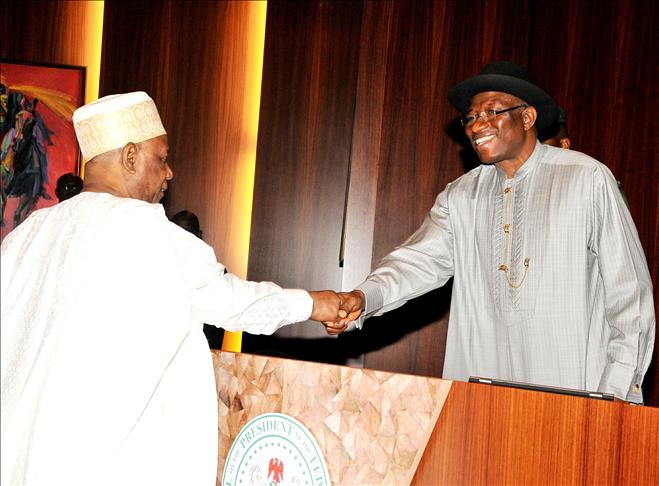
LAGOS
Nigeria on Friday said it had no intention of recognizing Kosovo as an independent country – a position that appears to contravene a 2010 ruling by the International Court of Justice (ICJ) affirming the legality of Kosovo's 2008 declaration of independence.
"Our position has always been consistent on issues of that nature [secession], including on Kosovo, which we have not recognized. We are still waiting for an agreement between Belgrade and Kosovo," Foreign Minister Aminu Wali told a delegation of EU ambassadors in Abuja.
In 2008, Kosovo unilaterally declared independence from Serbia – a decision that drew mixed reactions from the international community.
Nigeria, itself an amalgam of different ethnic nationalities and the survivor of a three-year civil war in the late 1960s, has a longstanding policy of not supporting secessionist movements.
Wali insisted that Nigeria's non-recognition of Kosovar independence would continue despite the 2010 ICJ ruling.
"Unless that happens [Kosovo and Serbia reach a deal], we still maintain our position," he said.
On the Ukraine-Russia crisis, Wali said Nigeria adhered to the U.N. General Assembly resolution deeming Russia's annexation of Crimea illegal and affirming Ukraine's territorial integrity.
"Nigeria's position is based on principles and respect for the U.N. Charter and the principles of international law. We have gone through our own civil war and have learnt our lessons in that respect," said Wali.
Nigeria, he added, "will be the last country to accept the forceful break-up of any country."
Wali went on to confirm that Nigeria would participate in an African Union/European Union summit, slated for April 2 and 3 in Brussels, irrespective of calls by some African countries to boycott the event over the E.U.'s decision not to invite some A.U. members.
"There are countries at work trying to sort out the hitch that has come up, but I believe that shouldn't stop the summit from taking place," Wali said.
The minister voiced appreciation for the E.U.'s support for Nigeria on security issues and elections, appealing for stepped-up international cooperation to counter the country's ongoing Boko Haram insurgency.
E.U. Ambassador to Nigeria Michel Arrion, however, appeared to disagree with Wali, as he sought to differentiate between the crises in Kosovo and Crimea.
"Some member states of the U.N. have taken inconsistent views on Crimea, compared with the view they have on Kosovo," Arrion said.
"For us, Kosovo is very different from Crimea," he added. "There was a deal in the 1990s on the future of the whole question of former Yugoslavia after years of war."
"The case of Crimea is totally different – the crisis just erupted. In one or two weeks, what we believe is a violation of international law occurred," he asserted.
Arrion nevertheless expressed satisfaction that several countries had voted in favor of Thursday's U.N. General Assembly resolution on Crimea.
The resolution calls on UN member states not to recognize any alteration of Crimea's status – or that of the city of Sevastopol – in the wake of a March 16 referendum that led to the region's official incorporation into Russia.
By Rafiu Ajakaye
englishnews@aa.com.tr
Anadolu Agency website contains only a portion of the news stories offered to subscribers in the AA News Broadcasting System (HAS), and in summarized form. Please contact us for subscription options.

